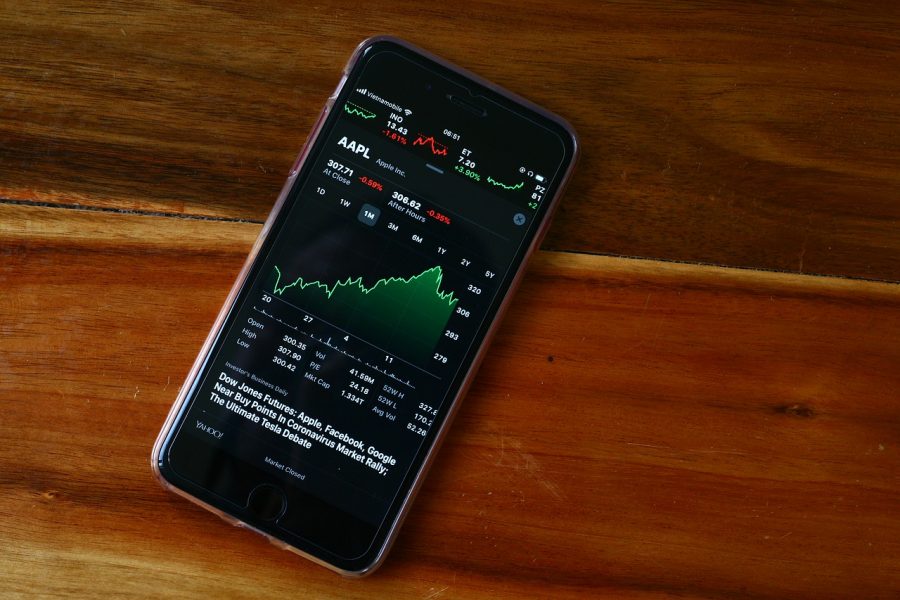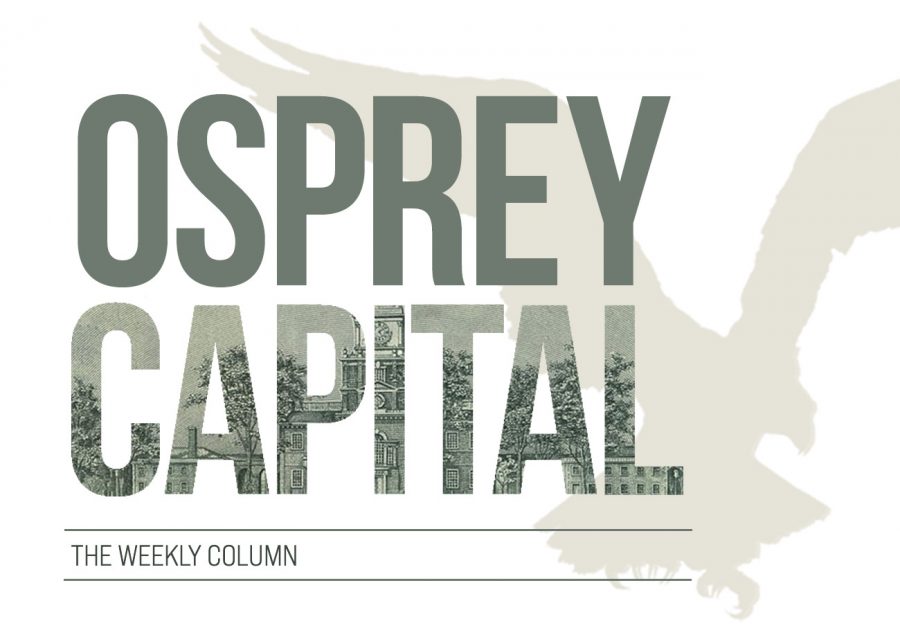The rise of influencers has continuously contributed to a world where people are encouraged to prove themselves through the image of their financial status. We have a society increasingly obsessed with consuming all the new products as influencers market the greatest of lifestyles to their envious audiences.
This raises concerns for those that may struggle with avoiding marketing ploys and managing finances. Starting early with smart money management can be far more worth it than chasing a materialistic lifestyle that may be harmful in the long run.
Ronald Heymann is the Director of the UNF BBA in Financial Planning program, which ranked number 5 out of the top 10 colleges for financial planning. Heymann is a CFP Board Certified education instructor who covers seven key areas of personal financial planning, and also runs his own fiduciary investment advisory firm called Davis Capital Management.
Heymann talks to around 100 kids per semester through an introduction to finance class, which happens to be a requirement in the business school for financial planning majors. He wishes the class itself would be a requirement for the entire college.
When referring to the course Heymann said,
“We go through everything that a graduating college student needs to know about how to manage their finances. You need to figure out how to manage a system that is rigged against most Americans. The earlier you can address issues and get out of debt, or avoid debt all together, you can have such a headstart in life.”
Time and time again, popular brands use influencers and social media stars for strategic marketing ploys on platforms such as Instagram, Tiktok, and YouTube. Brands might send these people on trips, or send them clothes to show their audiences. Restaurants might pay them to come eat an expensive dinner and post a story about it on Instagram. This evokes envy in their audiences and similar desires to attain lifestyles that may be currently financially unrealistic for them. Most things these creators show off are free for them. Easily manipulated target audiences for these corporations and businesses are young adults who don’t realize that their favorite stars are profiting off them while they remain broke.

“It is advertising at its most effective,” Heymann said.
He explained how the algorithm of the internet contributes to this by showing people personalized products they’ll enjoy based on activity recorded through data mining apps. He also explained how people 25 and under have highly disposable incomes. This age group does not have major bills yet, so to cater to them is profitable for these companies.
“You will never get to buy your own home if you continuously fall for that click. The influencers don’t care, they’re making millions from ad revenue. The perfect life does not exist,” Heymann said.
“They’re getting paid for clicks. They don’t care about your financial success or that you may have to file for bankruptcy. It’s a slippery slope, and at the end of the day, you gotta be responsible for yourself,” Heymann said.
Social media has given us the power to portray ourselves in any light we want to. Heymann thinks that people absolutely try to portray they have more money than they do. “Some of the wealthiest people I have ever met you would have no idea they’re worth 100 million dollars, and some that you would think are wealthy are piled up in debt.” He explained that these lifestyles are nice goals to have and that if you work hard and pay yourself first you can get there. However, if you’re buying every new phone that comes out, you’re not gonna get there unless you’re lucky or maybe already an influencer.
“It wouldn’t surprise me to see some of the influencers today broke later because of the cash burn rate,” Heymann said.
There are ways that students can manage their money in college and the earlier one starts saving, the better. Heymann thinks you should start saving now. Everyone can look at the income they have coming in and save a few dollars. The tricky thing is that most people have no idea where their money goes. “We spend the money without tracking income or expenses. Pay attention to what you are spending your money on. Once you know where the money goes you can find a way to squeeze money out,” according to Heymann.
Heymann suggested that the trick to avoiding the debt trap in the first place is in finding ways to minimize spending. Things like having a part time job in school to put cash away, bright futures, and going to college in state help. The COVID-19 pandemic has caused students to start spending less. More and more younger investors are entering the stock market with apps. Heymann said that this change in personal consumption and saving is encouraging.

A lot of Americans live above their means and spend more than they should based on their fixed income. This can create issues when emergency expenses arise or can leave people in a constant state of stress about having enough money left over. “ Most people in this country live above their means. We have become so accustomed as individuals to borrowing money, but we are also trillions of dollars in debt as a country. The government has the printing presses so there’s an advantage for them, but we don’t. So, we keep piling on debt, and we become dependent on the banks, the mortgage companies, and student loan companies.
How exactly should students be breaking down their finances? What kind of expenses are important? Heymann explained that everyone is a little different when it comes to their fixed expenses and variable expenses. Fixed expenses are the essential living expenses that everyone has such as phone bills, taxes, and rent. Variable expenses go towards things that are nice to have, but maybe not necessary, such as streaming platforms, coffee, or a gym membership. Heymann suggests doing an analysis on where your money goes and then figuring out what you absolutely need to spend and what you can go without.
“I try to tell people to have six months of safety cash if something like COVID hits. An emergency fund is critical,” according to Heymann.
Heymann suggests that for people who are trying to get out of the credit card debt hole, or avoid it all together to put their credit card in a cup of water and put it in the freezer. He said, “If you need it, you have it, but you’re going to have to defrost it to use it. Pay cash if you can. It hurts to rip out 60,000 dollars. Pay your credit card every month because that builds discipline. Pay attention to rates, if you have to use cards pick ones with lower rates. It’s important to have credit, but cultivate that. Your credit score is all you mean to the bank.”
Students are in a period of flexibility with distance learning. Some schedules allow for more time to work. “Making a few bucks a week will change the dynamic for any student. The whole economy of this country is built on consumerism and that’s great, as long as it’s not you .Let the other 300 million people support the economy, you save,” according to Heymann.
___
For more information or news tips, or if you see an error in this story or have any compliments or concerns, contact editor@unfspinnaker.com.









